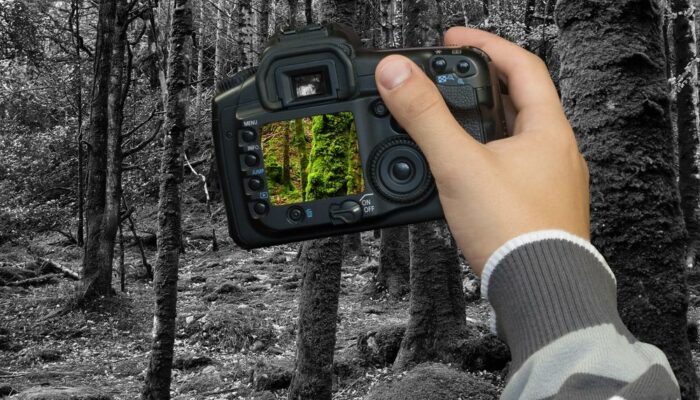Advancements in camera technology
Camera technology is fast changing in consort with digital technology. One is set to wonder how long photography is what it is. There are cameras in market that can take photos in virtual darkness without no light. One could wink and a photo may be taken. High end smartphones are set to challenge DSLRs.

Ultra-Compact: Earlier, cameras were defined with the thickness of less than an inch, let’s say thicknesses of about 2½ of a cm. It is not far away that this will be redefined and remodeled to half of an inch or less. Technologies are available to enable to eliminate all buttons and the camera thickness need be no more than the thickness of the screen. This has already been achieved in camera phones. Not only will this make the camera super-light but also get rid of redundant stuff.
Shutter Button is likely the first one that will be bidding a farewell. Cameras of the future may no longer require a shutter button. Motion sensors are already in use and can be adopted into cameras. The motion sensor needs to be on the photographer’s glasses or some other essential personal wear. If the camera were to be mounted on and operated from the photographer’s glasses, then aiming for the picture shot would be simpler too. Another option is to activate the shutter with voice command. Photographers could wink or use a voice command to tell the camera to record a photo. Hands-free smartphones are already in use.
Photo Smellography is another possibility around the corner. Asking the photographer to wait to put on some perfume used to be a semi serious joke once upon a time. It may after all be possible sooner than later. Of course, it needs to be choice based.
No light Photography is one where the camera can see even if humans cannot. Two leading camera manufacturers have already introduced cameras that can boost their ISO to 3 to 4 million without producing significant noise. The only problem with them is they quite expensive.
With the technologies already available and the ones already set up in line, photography of the future may be unrecognizable to us in a decade or so.





